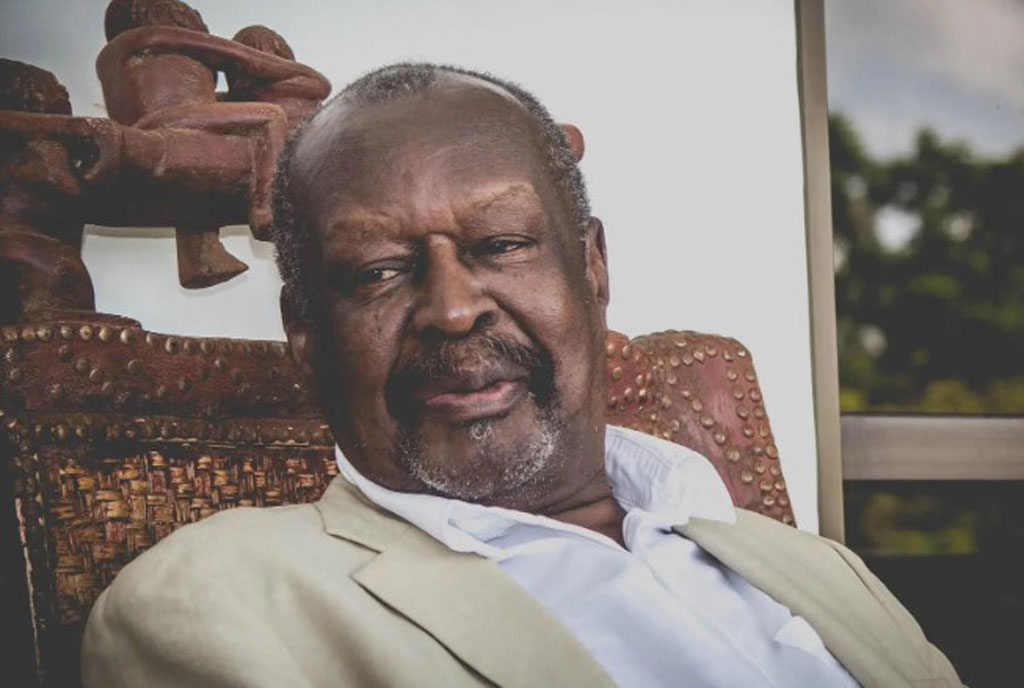Prime
John Nagenda and I

Author: Alan Tacca. PHOTO/FILE
What you need to know:
- ‘‘He sometimes ravaged my writing, but I never felt a need to return fire”
As a little guided pen-wielding rogue, I wandered into the territory where John Nagenda more or less enjoyed a free hand.
I vaguely recall that I first read his newspaper commentaries in the 1990s.
Before that, we had met briefly at various events where the tennis fraternity sometimes converged.
No longer a serious player, his pen came to the fore. He was a kind of demolition man, swinging at anyone who challenged President Museveni’s version of himself, his vision, or his rule.
Sometimes he did not strike with the aim to illuminate, but to injure.
Nagenda made you conscious how narrow the boundary between hilarious over-the-top mischief and below-the-belt cruelty was.
He knew he was an intimidating writer, appropriately feared, describing himself as President Museveni’s dog.
Politicians of Paul Ssemogerere’s temperament and ideological inclination, and newspaper commentators like FDR Gureme (both no longer with us) were targets Nagenda lampooned as frequently as the victims he fished from the UPC pool.
Ssemogerere was very absorbent. Gureme regularly hit back, more or less arguing that Nagenda did not have the grace or sagacity befitting of a person employed as the President’s spokesman.
A gifted wordsmith – albeit sometimes too flowery – Nagenda had weaponised language, not to serve democracy, but to undermine political Opposition and, ultimately, to serve a regime that was inching towards constitutional abuse and authoritarianism.
In my madness, I believed I had the weapons to take him on, and to survive retaliation from his pen, should it come.
From the start, I avoided Nagenda’s tendency to attack the ‘person’. I would concentrate on the things he had written or said, and there was plenty of stuff out there that had flowed from his pen and mouth.
My mission was to systematically scrutinise this material, demolish some of it, and, as a bonus, trim his size.
Nagenda wrote mainly for the government-owned New Vision. Although the paper would probably not agree to publish, I took them a copy of my article, with the condition that it was to be published unedited, if at all.
The features editor read the article right in front of me. He frowned a few times. When he finished, he was emotionless. He said the paper could not publish it unedited.
I understood him. He could not protect the meat in the article.
Monitor Publications was still firmly in the hands of its founders. They agreed to publish. I did not put conditions, but the full-page article appeared, virtually unedited.
The effect was overwhelming. My madness had paid off. For months after, Nagenda’s foes and friends talked about the thing on Nagenda that Monitor had published.
Without that article, I doubt whether the paper would have asked me, so long ago, to write for it regularly.
Critics must be grateful to anyone they find worth criticising. This is true, even in the small-time world where Nagenda and I scribbled newspaper columns, and I will forever be grateful that he provided me with the stuff on which to cut my teeth.
He sometimes ravaged my writing, but I never felt a need to return fire, taking in my stride what wisdom there was from a savage humourist.
And if what I write causes his boss some irritation, this, I believe, was generally all right with Nagenda.
For one of President Museveni’s sins is that his rule has disillusioned so many intellectuals who were devoted to him. They pass, like Nagenda has, as secretly unfulfilled souls, eluded by the joy of living in a civilised nation.
Mr Tacca is a novelist, socio-political commentator.
[email protected]




